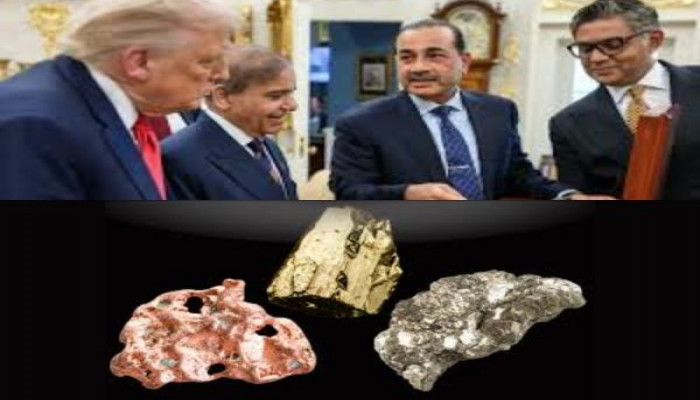Pakistan sends first-ever rare earth shipment to US amid protests over secret deals
- In Reports
- 06:03 PM, Oct 06, 2025
- Myind Staff
Pakistan has sent its first shipment of rare earth and critical minerals to the United States after signing a deal last month with an American company to explore and develop the country’s mineral resources. The move has sparked protests across Pakistan, with Imran Khan’s party, Pakistan Tehreek-e-Insaf (PTI), accusing the government of striking “secret deals” with the US. According to a report by Dawn on Monday, the sample shipment includes antimony, copper concentrate, and rare earth elements like neodymium and praseodymium.
US Strategic Metals (USSM) signed a Memorandum of Understanding with the Frontier Works Organisation (FWO), which is run by the Pakistani military, in September. The company plans to invest around $500 million to set up mineral processing and development facilities in Pakistan. Dawn reported that the samples sent to the US were “prepared locally in collaboration with the FWO.”
In a statement, USSM called the shipment “a significant milestone in the strategic partnership between Pakistan and the United States,” adding that the agreement “lays out a comprehensive framework for collaboration across the full mineral value chain, spanning exploration, processing, and the development of refining facilities within Pakistan.”
Based in Missouri, USSM focuses on producing and recycling critical minerals, which the US Department of Energy describes as essential for several modern technologies, according to the US mission in Pakistan.
The shipment came soon after the White House released a picture showing Donald Trump looking at a box of rocks labelled as rare earth minerals. In the image, Pakistan’s Army Chief Asim Munir appeared to be explaining something to Trump while Prime Minister Shehbaz Sharif smiled beside him.
Struggling under heavy debt, Pakistan appears eager to attract the attention of Trump, known for his deal-making approach, by promoting its untapped rare earth reserves. Dawn reported that Pakistan’s mineral wealth is estimated at nearly $6 trillion, placing it among the richest resource nations. However, several multinational companies have previously exited Pakistan after failing to locate the mineral deposits they were promised.
Imran Khan’s PTI has demanded that the government disclose full details of all agreements signed with the US and its companies. PTI Information Secretary Sheikh Waqqas Akram urged the government to make these deals public, saying both Parliament and the nation “must be taken on board.”
The controversy is not limited to the $500 million mineral agreement. Citing national interest, PTI has also expressed concern over reports that Pakistan might offer the Pasni Port, located near the China-backed Gwadar Port, to the US for mineral access. These concerns deepened after a closed-door meeting between Shehbaz Sharif, Asim Munir, and Trump, which some critics compared to colonial-era “concessions.”
Commenting on the reports, PTI warned that such “reckless, one-sided, and secretive deals could further aggravate the already fragile situation in the country.”
According to The Financial Times, Pakistan recently proposed giving the US access to a port on the Arabian Sea in Balochistan, near the strategic Gwadar Port developed by China and not far from India’s Chabahar Port in Iran.
Akram said PTI “would never accept agreements struck at the expense of the people and the state's interests,” and urged the government to learn from history. He warned that such deals could have “disastrous consequences,” comparing them to Mughal Emperor Jahangir’s 1615 decision to grant trading rights to the British at Surat Port, which later paved the way for colonial rule.







Comments